Are you about to face a big test? Feeling stressed about how to best prepare? Many students find themselves in the same boat, unsure how to make the most of their review time. But fear not! With the right strategies, review sessions can be a powerful tool for exam success.
This article will give you actionable ways to plan effective review sessions. You’ll learn how to pick the best review methods for you, structure your study time, and beat test-day anxiety. This isn’t just about cramming; it’s about truly mastering the material.
Why Planning Your Review Sessions Matters
Think of review sessions as your final dress rehearsal before the big show. They are not just about rereading notes; they’re about solidifying your understanding and identifying weak spots. A well-planned review session can:
- Boost Confidence: Knowing you’ve covered all the key areas can ease test anxiety.
- Improve Retention: Active review helps move information from short-term to long-term memory. Studies show that spaced repetition, a technique often used in review, can significantly improve memory recall.
- Identify Knowledge Gaps: Review sessions highlight areas where you need more focus.
- Enhance Problem-Solving Skills: Practice applying concepts to different scenarios sharpens your ability to answer complex questions.
Key Elements of Effective Review Session Planning
1. Understanding Your Learning Style
We all learn differently. What works for one person may not work for another. Before you dive into planning, take a moment to understand your learning style:
- Visual Learners: Benefit from diagrams, charts, and videos.
- Auditory Learners: Prefer lectures, discussions, and recordings.
- Kinesthetic Learners: Learn best through hands-on activities and practice.
- Read/Write Learners: Excel with written materials, notes, and summaries.
Knowing your style will help you choose review methods that are most effective for you.
2. Setting Clear Goals
Before each review session, define what you want to achieve. Are you aiming to:
- Master a specific concept?
- Solve a particular type of problem?
- Review all the material from a specific chapter?
Having clear goals will help you stay focused and measure your progress.
3. Choosing the Right Review Methods
Not all review methods are created equal. The best ones actively engage you with the material:
- Practice Questions: The gold standard. Use old exams, textbook questions, or create your own.
- Concept Mapping: Visually connect ideas to see the bigger picture.
- Teaching Others: Explaining concepts to someone else forces you to truly understand them.
- Flashcards: Great for memorizing facts and definitions.
- Summarization: Condense key ideas into your own words.
4. Creating a Realistic Schedule
Don’t try to cram everything in at once. Space out your review sessions over several days or weeks. This technique, known as spaced repetition, is proven to improve long-term retention.
- Break it Down: Divide the material into smaller, manageable chunks.
- Allocate Time: Assign specific time slots for each topic or activity.
- Include Breaks: Regular breaks prevent burnout and improve focus.
- Be Flexible: Adjust your schedule as needed based on your progress.
5. Finding the Right Environment
Your study environment can significantly impact your focus and productivity. Choose a place that is:
- Quiet: Minimize distractions.
- Comfortable: But not too comfortable (avoid studying in bed!).
- Organized: Keep your materials within reach.
- Free from Interruptions: Let others know you need uninterrupted study time.
6. Minimizing Distractions
In today’s world, distractions are everywhere. Social media, notifications, and even wandering thoughts can derail your review session.
- Turn Off Notifications: Silence your phone and computer.
- Use Website Blockers: Prevent yourself from visiting distracting sites.
- Practice Mindfulness: Train yourself to recognize and redirect wandering thoughts.
- Take Breaks: Short, focused breaks can actually improve concentration.
Effective Review Methods: A Deep Dive
Let’s explore some effective review methods in more detail:
Practice Questions: The Power of Active Recall
Practice questions are arguably the most effective review method because they force you to actively recall information. This process strengthens the neural pathways associated with that knowledge, making it easier to remember in the future.
- Types of Practice Questions:
- Past Exams: These give you a realistic sense of the test format and difficulty.
- Textbook Questions: Cover the core concepts of each chapter.
- Self-Generated Questions: Help you think critically about the material.
- How to Use Practice Questions Effectively:
- Simulate Test Conditions: Time yourself and avoid using notes.
- Analyze Your Mistakes: Understand why you got the answer wrong and review the underlying concept.
- Focus on Weak Areas: Spend more time on questions related to topics you struggle with.
- Use a Variety of Question Types: Multiple choice, short answer, essay questions, etc.
Concept Mapping: Visualizing Connections
Concept mapping is a visual technique that helps you organize and connect ideas. It can be particularly useful for understanding complex topics with many interconnected concepts.
- How to Create a Concept Map:
- Start with a Central Idea: Write the main topic in the center of a page and draw a circle around it.
- Identify Related Concepts: Brainstorm related concepts and write them around the central idea, connecting them with lines.
- Add Details: Include definitions, examples, and other relevant information.
- Show Relationships: Use different colors or line styles to indicate different types of relationships between concepts.
- Benefits of Concept Mapping:
- Improves Understanding: Forces you to think about the relationships between ideas.
- Enhances Memory: Visual representation aids recall.
- Identifies Gaps in Knowledge: Highlights areas where you need more study.
Teaching Others: Mastering the Material
Explaining concepts to someone else is a powerful way to solidify your own understanding. This method forces you to organize your thoughts, identify areas where you’re unsure, and articulate the material in a clear and concise way.
- How to Teach Effectively:
- Choose Your Audience: Find a friend, family member, or study partner who is willing to listen.
- Prepare Your Lesson: Review the material beforehand and plan what you want to cover.
- Use Simple Language: Avoid jargon and explain concepts in a way that your audience can understand.
- Encourage Questions: Ask your audience if they have any questions and answer them to the best of your ability.
- Be Patient: Teaching can be challenging, so be patient with yourself and your audience.
- Benefits of Teaching:
- Identifies Weaknesses: Highlights areas where you struggle to explain the material.
- Improves Communication Skills: Develops your ability to articulate complex ideas clearly.
- Boosts Confidence: Reinforces your understanding of the material.
Flashcards: Mastering Facts and Definitions
Flashcards are a classic review method for memorizing facts, definitions, formulas, and other discrete pieces of information. They are particularly useful for subjects like vocabulary, history, and science.
- How to Create Effective Flashcards:
- Keep it Concise: Use short phrases and keywords.
- Focus on One Idea per Card: Avoid overcrowding.
- Use Visuals: Add images or diagrams to aid memory.
- Use Different Colors: To categorize information or highlight key terms.
- How to Use Flashcards Effectively:
- Spaced Repetition: Review cards at increasing intervals.
- Active Recall: Try to answer the question before flipping the card.
- Shuffle the Deck: To prevent rote memorization.
- Focus on Difficult Cards: Spend more time on cards you struggle with.
Summarization: Condensing Key Ideas
Summarization involves condensing key ideas into your own words. This process forces you to actively engage with the material, understand its core concepts, and identify the most important information.
- How to Summarize Effectively:
- Read the Material Carefully: Understand the main points and supporting details.
- Identify Key Ideas: Highlight or underline the most important information.
- Rewrite in Your Own Words: Use your own language and avoid simply copying from the text.
- Focus on the Core Concepts: Condense the material to its essential elements.
- Review and Edit: Ensure your summary is accurate, concise, and easy to understand.
- Benefits of Summarization:
- Improves Comprehension: Forces you to understand the material at a deeper level.
- Enhances Retention: Writing summaries helps move information to long-term memory.
- Identifies Gaps in Knowledge: Highlights areas where you need more study.
Structuring Your Review Sessions for Success
1. The Spaced Repetition Approach
Spaced repetition is a learning technique that involves reviewing material at increasing intervals. This method is based on the principle that our brains are more likely to remember information if we review it periodically over time.
- How Spaced Repetition Works:
- Initial Review: Review the material soon after you learn it.
- Subsequent Reviews: Schedule subsequent reviews at increasing intervals (e.g., 1 day, 3 days, 7 days, 14 days).
- Adjust Intervals: Adjust the intervals based on your performance. If you’re struggling to remember the material, shorten the intervals. If you’re remembering it easily, lengthen the intervals.
- Tools for Spaced Repetition:
- Anki: A popular flashcard program that uses spaced repetition algorithms.
- RemNote: A note-taking app with built-in spaced repetition features.
- Physical Calendar: A simple way to schedule and track your review sessions.
2. The Pomodoro Technique
The Pomodoro Technique is a time management method that involves working in focused bursts, separated by short breaks. This technique can help you stay productive and prevent burnout during long review sessions.
- How the Pomodoro Technique Works:
- Set a Timer: Work on a task for 25 minutes.
- Take a Short Break: Take a 5-minute break.
- Repeat: Repeat steps 1 and 2 four times.
- Take a Long Break: Take a 20-30 minute break.
- Benefits of the Pomodoro Technique:
- Improves Focus: Short, focused bursts of work enhance concentration.
- Reduces Procrastination: Breaking down tasks into smaller chunks makes them less daunting.
- Prevents Burnout: Regular breaks prevent mental fatigue.
3. The Active Recall and Review Method
This method combines active recall with regular review to maximize learning and retention. It involves testing yourself on the material, identifying areas where you need more study, and then reviewing those areas in more detail.
- How to Use the Active Recall and Review Method:
- Test Yourself: Start by testing yourself on the material using practice questions, flashcards, or other methods.
- Identify Weak Areas: Note the topics or concepts that you struggle with.
- Review Those Areas: Review the material related to your weak areas in more detail.
- Test Yourself Again: Test yourself again on the same material to see if you’ve improved.
- Repeat: Repeat steps 1-4 until you’ve mastered the material.
Overcoming Common Challenges in Review Session Planning
1. Procrastination
Procrastination is the enemy of effective review. It can lead to cramming, stress, and poor performance.
- Strategies for Overcoming Procrastination:
- Break Down Tasks: Divide large tasks into smaller, more manageable chunks.
- Set Deadlines: Create a realistic schedule with specific deadlines for each task.
- Reward Yourself: Give yourself a small reward after completing each task.
- Find an Accountability Partner: Work with a friend or study partner to stay on track.
- Identify the Root Cause: Understand why you’re procrastinating and address the underlying issue.
2. Test Anxiety
Test anxiety is a common problem that can negatively impact performance. It can lead to racing thoughts, difficulty concentrating, and even physical symptoms like sweating and shaking.
- Strategies for Managing Test Anxiety:
- Prepare Thoroughly: The more prepared you are, the less anxious you’ll feel.
- Practice Relaxation Techniques: Deep breathing, meditation, and progressive muscle relaxation can help calm your nerves.
- Visualize Success: Imagine yourself performing well on the test.
- Challenge Negative Thoughts: Replace negative thoughts with positive ones.
- Talk to Someone: Share your concerns with a friend, family member, or counselor.
3. Lack of Motivation
It’s normal to feel unmotivated from time to time, especially when facing a challenging test.
- Strategies for Boosting Motivation:
- Set Meaningful Goals: Connect your studies to your long-term goals.
- Reward Yourself: Celebrate your progress with small rewards.
- Find a Study Partner: Studying with someone else can make the process more enjoyable.
- Change Your Environment: Try studying in a new location.
- Remember Your “Why”: Remind yourself why you’re studying in the first place.
4. Difficulty Concentrating
In today’s world, it’s easy to get distracted.
- Strategies for Improving Concentration:
- Minimize Distractions: Turn off notifications, use website blockers, and find a quiet study environment.
- Take Breaks: Short, focused breaks can actually improve concentration.
- Practice Mindfulness: Train yourself to recognize and redirect wandering thoughts.
- Get Enough Sleep: Lack of sleep can impair cognitive function and make it difficult to concentrate.
- Exercise Regularly: Physical activity can improve blood flow to the brain and enhance cognitive function.
Tailoring Review Methods to Specific Subjects
Not all subjects are created equal. Some require more memorization, while others require more problem-solving. Here’s how to tailor your review methods to specific subjects:
Mathematics
- Focus: Problem-solving and application of concepts.
- Effective Methods:
- Practice Questions: Solve a wide variety of problems.
- Review Formulas: Memorize key formulas and understand their applications.
- Teach Others: Explain concepts to someone else.
Science
- Focus: Memorization of facts and understanding of concepts.
- Effective Methods:
- Flashcards: Memorize key terms and definitions.
- Concept Mapping: Visualize the relationships between concepts.
- Practice Questions: Test your understanding of the material.
History
- Focus: Memorization of dates, events, and people.
- Effective Methods:
- Timelines: Create timelines to visualize the sequence of events.
- Flashcards: Memorize key dates, events, and people.
- Summarization: Condense key ideas into your own words.
Literature
- Focus: Understanding themes, characters, and literary devices.
- Effective Methods:
- Character Maps: Visualize the relationships between characters.
- Theme Analysis: Identify and analyze the major themes in the text.
- Essay Writing: Practice writing essays to develop your analytical skills.
The Power of Collaboration: Study Groups
Studying with others can be a powerful way to enhance your review sessions. Study groups offer a variety of benefits, including:
- Different Perspectives: Gain insights from others’ points of view.
- Motivation and Support: Stay motivated and supported by your peers.
- Active Learning: Teach and explain concepts to others.
- Identification of Weaknesses: Identify areas where you need more study.
How to Form an Effective Study Group:
- Choose Members Wisely: Select students who are committed to studying and who have a similar work ethic.
- Set Clear Goals: Define what you want to achieve in each study session.
- Assign Roles: Assign roles to each member, such as facilitator, note-taker, and question-asker.
- Stay Focused: Avoid getting sidetracked by irrelevant topics.
- Be Respectful: Value each member’s contributions and opinions.
Beyond the Books: Taking Care of Yourself
Effective review session planning isn’t just about studying; it’s also about taking care of yourself. Your physical and mental well-being can significantly impact your focus, motivation, and performance.
- Get Enough Sleep: Aim for 7-8 hours of sleep per night.
- Eat a Healthy Diet: Fuel your brain with nutritious foods.
- Exercise Regularly: Physical activity can improve cognitive function and reduce stress.
- Take Breaks: Regular breaks prevent burnout and improve focus.
- Practice Relaxation Techniques: Deep breathing, meditation, and yoga can help calm your nerves.
Fine-Tuning Your Strategy for Different Test Formats
The format of the test can also influence your review methods.
- Multiple Choice: Focus on understanding the nuances of different concepts and practicing elimination strategies.
- Essay: Practice outlining and writing essays under timed conditions.
- Problem-Solving: Work through numerous practice problems, focusing on identifying the correct approach and applying formulas.
- Oral Exams: Practice articulating your knowledge clearly and concisely.
Should You Get Studying?
Planning effective review sessions is a crucial step towards exam success. By understanding your learning style, setting clear goals, choosing the right review methods, creating a realistic schedule, and minimizing distractions, you can make the most of your study time and boost your confidence. And, most importantly, ace that test!





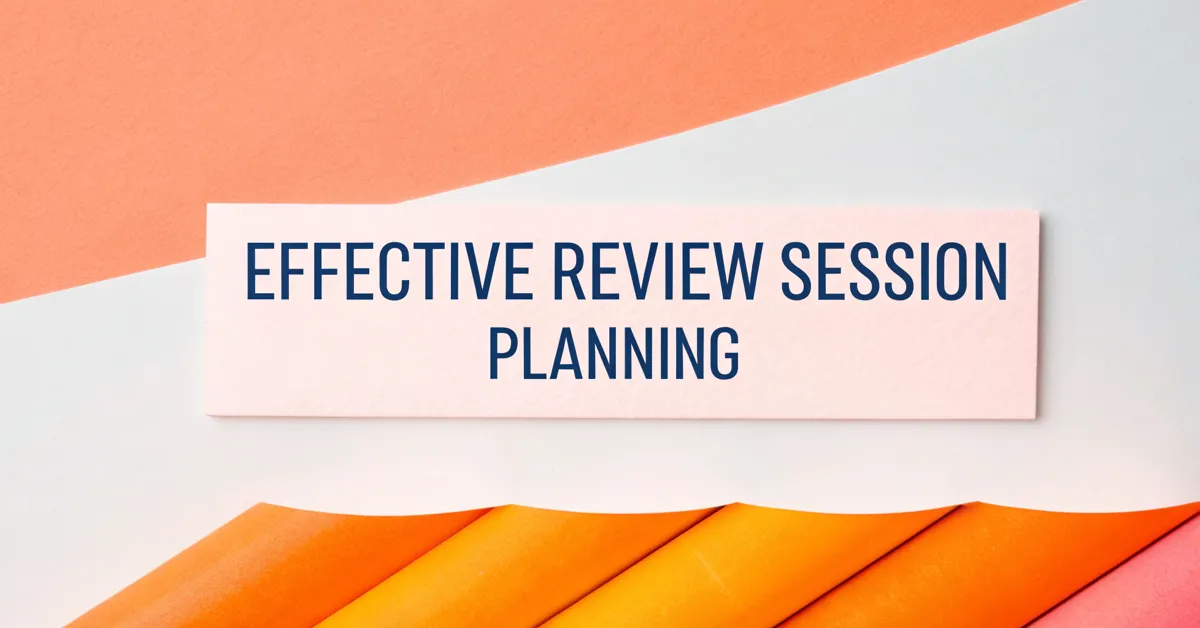





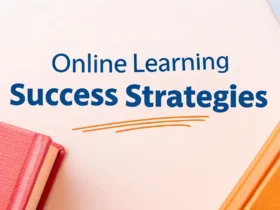
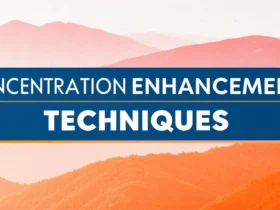
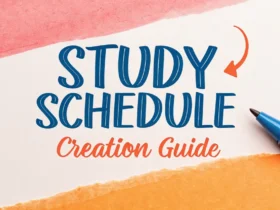
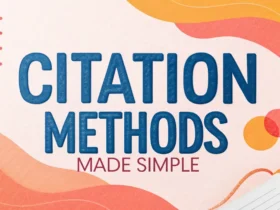
Leave a Reply
View Comments